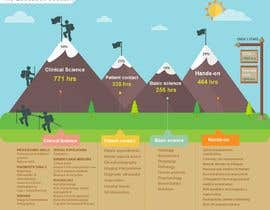Nutrition And Its Significance In Back Pain Control: Foods To Support And Foods To Avoid
Nutrition And Its Significance In Back Pain Control: Foods To Support And Foods To Avoid
Blog Article
Composed By-Russo Nicolajsen
When it pertains to handling your pain in the back, the food choices you make can substantially influence just how you really feel on a daily basis. Envision having the ability to ease your discomfort merely by changing what you consume. By recognizing lifestyle medicine doctors near me of nutrition in back pain administration and understanding which foods to incorporate or steer clear of, you can take proactive actions in the direction of a much healthier and more comfy lifestyle. The link between nutrition and back wellness is a lot more profound than you might understand-- allow's discover exactly how specific foods can either soothe or intensify your back pain.
Value of Nourishment in Pain In The Back
Nourishment plays a vital duty in managing pain in the back. Your diet plan can significantly affect inflammation degrees and overall pain degrees in your back. Consuming a well balanced diet regimen abundant in nutrients like vitamins D and K, calcium, magnesium, and omega-3 fats can help in reducing inflammation and strengthen bones, which are necessary for back health.
Additionally, keeping a healthy weight via proper nourishment can minimize tension on your back, lowering the danger of pain in the back.
Additionally, certain nutrients like antioxidants found in vegetables and fruits can help fight oxidative anxiety and advertise recovery in the body, including the back muscular tissues and back.
On the other hand, eating excessive amounts of refined foods, sweet beverages, and undesirable fats can contribute to inflammation and weight gain, intensifying pain in the back.
Foods to Consume for Back Health And Wellness
To support a healthy and balanced back, incorporating nutrient-rich foods right into your day-to-day dishes is key. Consisting of foods high in anti-oxidants like berries, spinach, and kale can help reduce swelling in your back, reducing discomfort and discomfort. Omega-3 fatty acids located in fatty fish such as salmon and mackerel have anti-inflammatory residential properties that can benefit your back health and wellness.
Additionally, consuming nuts and seeds like almonds, walnuts, and chia seeds gives essential nutrients like magnesium and vitamin E, which sustain muscle mass function and lower oxidative anxiety. Including lean healthy proteins such as chicken, turkey, and tofu can aid in muscle repair and upkeep, promoting a solid back.
Don't fail to remember to consist of milk or fortified plant-based options for calcium to sustain bone wellness. Lastly, moisturize with a lot of water to maintain your spine discs moistened and working ideally. By consisting of these nutrient-dense foods in your diet, you can nurture your back and support general back wellness.
Foods to Stay Clear Of for Neck And Back Pain
Choose staying clear of processed foods high in added sugars and trans fats when looking for remedy for pain in the back. These types of foods can contribute to inflammation in the body, which may aggravate pain in the back. Say no to sweet treats like candy, breads, and sugary drinks, along with fast food things like burgers, fries, and fried chicken that are usually filled with trans fats.
In addition, stay away from foods including high levels of polished carbohydrates, such as white bread, pasta, and pastries, as they can spike blood sugar level levels and possibly worsen swelling in the body.
It's additionally smart to limit your intake of foods high in hydrogenated fats, like red meat and full-fat dairy products, as they can contribute to inflammation. Refined sports medicine like deli meats, chips, and packaged treats are often high in saturated fats and should be consumed in moderation.
Conclusion
In conclusion, focusing on your diet plan and making clever food choices can have a significant impact on taking care of pain in the back. By including nutrient-rich foods like berries, fatty fish, nuts, and lean proteins, and avoiding processed and sugary products, you can help in reducing inflammation and assistance in general back wellness. Keep in mind, what you eat plays a vital function in how you feel, so make sure to prioritize your nourishment for a much healthier back.
